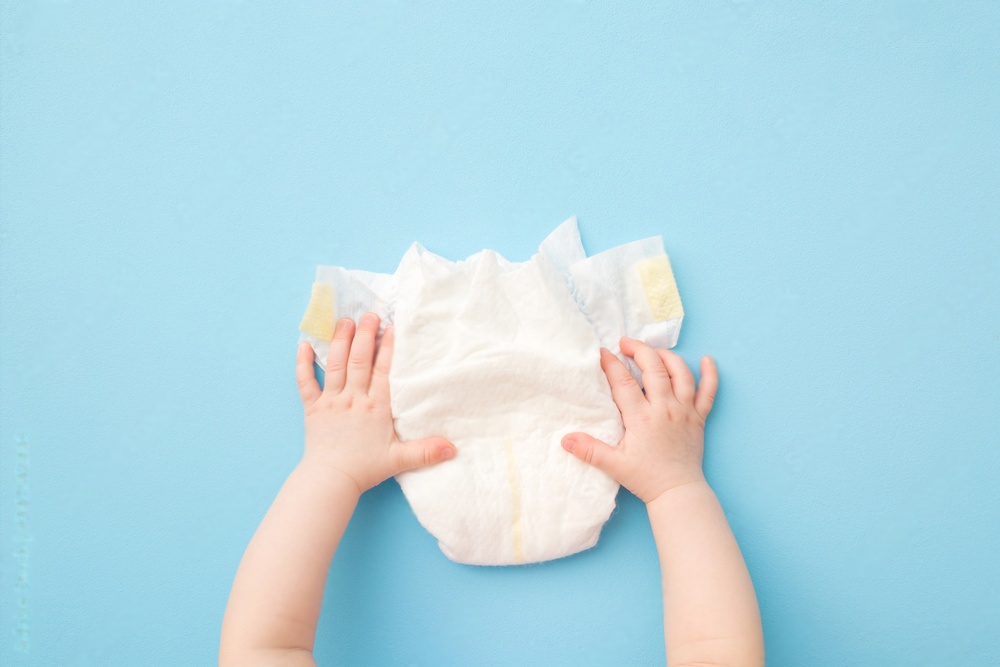Parenthood brings joy, but it also comes with its fair share of expenses, particularly when it comes to diapers. These essentials can take a significant chunk out of your budget, but fear not! There are numerous savvy strategies to help you save money without compromising on your little one’s comfort and hygiene.
1. Embrace Bulk Purchases
Embracing bulk purchases involves buying diapers in larger quantities, which often translates to significant cost savings. This strategy entails seeking out opportunities such as special deals, discounts, or offers specifically tailored for purchasing diapers in bulk. By availing yourself of these options, you can effectively reduce the average cost per diaper, allowing you to save considerably on your overall diaper expenses. Embracing bulk purchases is a proactive approach that enables you to secure a more budget-friendly diaper supply while ensuring you have an ample stock for your baby’s needs.
2. Subscribe and Save Programs
Subscribe and Save programs are a convenient and cost-effective way to manage your diaper expenses. These programs, often offered by various online retailers, allow you to set up a recurring delivery schedule for diapers. By subscribing, you not only ensure a regular supply of diapers but also benefit from discounts, exclusive offers, and sometimes even free shipping. Typically, these programs provide flexibility in choosing delivery frequencies based on your baby’s needs. Subscribing to such programs not only saves you time and effort but also offers financial savings by providing discounted rates for diapers, making it a smart and hassle-free way to maintain a steady supply of diapers for your little one.
3. Opt for Cloth Diapers
Choosing cloth diapers is a sustainable and economical alternative to disposable ones. Cloth diapers, typically made from absorbent fabrics, are reusable and washable, making them an eco-friendly option. While the initial cost might be higher than disposable diapers, the long-term savings are substantial. Opting for cloth diapers involves investing in a set of reusable diapers that can be washed and reused multiple times, reducing the need for continuous purchases. These diapers come in various styles, such as prefolds, fitted, or all-in-ones, offering options that suit different preferences and convenience levels. Additionally, cloth diapers contribute positively to reducing environmental waste generated by disposable diapers, making them a greener choice for environmentally-conscious parents seeking to save money in the long run.
4. Take Advantage of Coupons
Utilizing coupons is a savvy way to cut down on diaper expenses. Coupons, available through various mediums such as newspapers, online platforms, or loyalty programs, offer discounts on diaper purchases. These vouchers can range from percentage discounts to cashback offers, allowing you to save money on each diaper pack. Keeping an eye out for coupons and regularly checking for new offers can lead to significant savings over time. Some coupons might be specific to certain brands or retailers, while others offer more flexibility in choices. Taking advantage of these discounts helps optimize your budget by reducing the overall cost of purchasing diapers, providing a practical and cost-efficient approach to managing baby care expenses.
5. Explore Store Brands
Exploring store brands for diapers is a smart approach to finding cost-effective options without compromising quality. Store brands, often referred to as private-label or generic brands, are diapers produced by retailers themselves. These brands offer a more affordable alternative to well-known diaper brands. While they may not have the same recognizable names, store brands often match or even exceed the quality of name brands at a lower price point. Trying out different store brands allows parents to find diapers that suit their baby’s needs while saving money. It’s a prudent strategy to consider, as these store-brand diapers can offer excellent value and performance, contributing to substantial savings in the long run without compromising on your baby’s comfort and protection.
6. Join Rewards Programs
Enrolling in rewards programs tailored for diapers can be an advantageous way to save on your baby’s essentials. Many diaper manufacturers and retailers offer rewards programs that allow customers to accumulate points or earn rewards with each purchase of diapers. These programs often come with additional perks, such as exclusive discounts, coupons, or even freebies after reaching certain point thresholds. By joining these rewards programs, parents can benefit from accumulating points that can later be redeemed for discounts on future diaper purchases or other baby-related products. It’s a proactive approach that not only helps save money on diapers but also provides additional incentives and bonuses, making it a beneficial strategy for budget-conscious parents.
7. Price Match Policies
Taking advantage of price match policies offered by retailers can lead to significant savings on diaper purchases. Many stores have policies where they match or beat the prices offered by competitors for the same product. By being aware of these policies, shoppers can compare prices across various retailers and request a price match if they find a lower price elsewhere. This approach ensures that you get the best available deal without having to compromise on your preferred store or brand. Price match policies provide an opportunity to secure the most competitive prices for diapers, ultimately saving money while ensuring convenience and satisfaction with your purchase.
8. Use Cashback and Reward Apps
Utilizing cashback and reward apps can be a lucrative method to save money on diaper purchases. These apps, available on smartphones or online platforms, offer cashback, rewards, or points for various purchases, including diapers. By using these apps when buying diapers, parents can earn cashback or accumulate points that can later be redeemed for discounts, gift cards, or other incentives. Some apps may also offer exclusive deals or bonuses for specific diaper brands or retailers. Incorporating these cashback and reward apps into your diaper shopping routine allows you to maximize savings, providing an additional way to stretch your budget and make the most out of every purchase.
9. Buy Diapers Online
Purchasing diapers online offers convenience, cost-efficiency, and a wider range of options. Online platforms provide a plethora of choices, allowing parents to explore various brands, sizes, and types of diapers. Moreover, online retailers often offer competitive prices, exclusive discounts, and promotions specifically for online shoppers. The convenience of doorstep delivery saves time and effort, eliminating the need for physical store visits. Additionally, subscribing to online platforms for regular diaper deliveries can result in further savings through subscription discounts, automatic deliveries, and sometimes free shipping offers. Buying diapers online presents an efficient and budget-friendly approach for parents to ensure a steady supply of diapers while maximizing savings.
10. Consider Diaper Swapping or Exchanges
Considering diaper swapping or exchanges involves connecting with other parents to trade diapers. This cost-effective approach allows parents to exchange unused or outgrown diapers for sizes that fit their baby. Parents can connect through local parenting groups, online forums, or social media platforms to arrange swaps. By engaging in diaper swaps, parents can avoid wasting diapers that no longer fit their baby while acquiring diapers in sizes they need. This community-based strategy not only helps in saving money but also fosters connections with other parents, creating a supportive network for sharing and exchanging baby essentials.
11. Monitor Sales Cycles
Monitoring sales cycles involves keeping track of periodic sales events at various stores. Retailers often offer discounts, promotions, or clearance sales on diapers at specific times throughout the year. By staying vigilant and observing these sales patterns, parents can plan their diaper purchases to coincide with these events. This strategy enables them to capitalize on reduced prices, buy in bulk during sales, or take advantage of clearance offers to save money. Monitoring sales cycles requires a bit of observation and planning but can result in significant savings on diaper expenses over time.
12. Limit Diaper Changes
Limiting diaper changes involves being mindful of the frequency of changing diapers without compromising on your baby’s comfort or hygiene. While maintaining proper hygiene for your baby is essential, unnecessary or overly frequent diaper changes can contribute to increased diaper consumption and higher expenses. By assessing your baby’s needs and being selective about changing diapers only when necessary, parents can effectively manage their diaper usage. This approach involves using diapers for their intended duration, considering the diaper’s capacity and the baby’s comfort, without changing them excessively. Limiting diaper changes not only helps in reducing the overall consumption of diapers but also contributes to cost savings in the long run.
13. Use Cloth Wipes
Utilizing cloth wipes presents an eco-friendly and cost-effective alternative to disposable wipes. Cloth wipes, typically made from soft and reusable fabrics, offer a gentle and sustainable option for cleaning your baby during diaper changes. These wipes can be washed and reused multiple times, reducing the need for continuously purchasing disposable wipes. Using cloth wipes involves wetting them with water or a gentle cleansing solution before use, providing a natural and hypoallergenic option for your baby’s sensitive skin. Additionally, cloth wipes are durable and can withstand multiple washes, making them a practical and economical choice for environmentally-conscious parents seeking to reduce waste and save money on baby care essentials.
14. Sign Up for Free Samples
Signing up for free samples is a practical way to test different diaper brands without incurring any cost. Many diaper companies offer free sample programs where parents can register to receive trial packs of diapers. These samples, typically available in various sizes, allow parents to evaluate the quality, fit, and suitability of different diaper brands for their baby. By signing up for these programs, parents can explore multiple brands, assess their performance, and make informed decisions without committing to a purchase. It’s a convenient and cost-free method to discover which diapers work best for your baby, potentially saving money by choosing the most suitable option before making a purchase.
15. DIY Diaper Creams
Creating do-it-yourself (DIY) diaper creams offers a cost-effective and natural alternative to store-bought options. These homemade creams, often made from natural ingredients like coconut oil, shea butter, beeswax, and essential oils, provide a gentle and soothing solution for diaper rash and irritation. Parents can find numerous DIY recipes online or in parenting resources to create their own diaper creams. By making these creams at home, parents have control over the ingredients, ensuring they are free from harmful chemicals or additives. DIY diaper creams not only promote a more natural approach to skincare for babies but also contribute to cost savings as they can be made in small batches, tailored to your baby’s needs, and are often more economical than purchasing commercial products.
16. Avoid Convenience Stores
Avoiding convenience stores for diaper purchases involves opting for alternative retailers like supermarkets or wholesale stores. Convenience stores typically charge higher prices for diapers due to their convenience factor and limited inventory. Instead, choosing supermarkets or wholesale outlets often offers a more cost-effective option. These larger retailers usually offer a wider selection of diaper brands and sizes at competitive prices. By steering clear of convenience stores and opting for larger retail outlets, parents can save money on their diaper purchases. This strategy allows them to access a broader range of choices while securing better deals and prices, ultimately optimizing their budget for baby essentials.
17. Utilize Cashback Credit Cards
Utilizing cashback credit cards for diaper purchases can be a strategic way to earn rewards and save money. These credit cards offer cashback or rewards points on various purchases, including baby products like diapers. By using a cashback credit card for diaper expenses, parents can earn a percentage of the purchase amount back as cash rewards or points. Some credit cards may even offer higher cashback rates or bonuses specifically for baby-related purchases. Accumulating cashback rewards on these cards allows parents to redeem them for statement credits, gift cards, or other rewards, effectively reducing the overall cost of buying diapers. It’s a smart financial tactic that allows parents to earn benefits on essential purchases for their little ones.
18. Participate in Diaper Studies or Trials
Participating in diaper studies or trials involves joining programs offered by diaper companies or research groups to test and provide feedback on their diaper products. These programs often recruit parents and provide them with free diaper samples or trial packs to use on their babies. Participants are then requested to share their experiences, including feedback on the diaper’s fit, comfort, absorbency, and overall performance. By joining these trials, parents can receive free diapers for their baby’s use while contributing valuable insights that help companies improve their products. This not only provides an opportunity to receive diapers at no cost but also allows parents to play a role in shaping the quality and features of future diaper products.
19. Size Up Wisely
Choosing the right diaper size for your baby is crucial in managing costs effectively. It’s essential to size up diapers wisely, ensuring they fit your baby comfortably without unnecessary upsizing. Diapers that are too small can cause discomfort and leaks, while prematurely switching to larger sizes may lead to unnecessary expenses. Parents should pay attention to their baby’s weight and growth patterns to determine when it’s appropriate to move up to the next diaper size. It’s advisable to avoid sizing up too early; instead, wait until the current size becomes consistently snug or less effective before transitioning to the next size. Making informed decisions on diaper sizing ensures you maximize the use of each diaper pack, avoiding unnecessary waste and expenses.
20. Compare Unit Prices
Comparing unit prices when purchasing diapers involves evaluating the cost per diaper across different pack sizes or brands to identify the most cost-effective option. While larger packs may seem more economical, it’s essential to calculate and compare the unit price to ensure you’re getting the best deal. To do this, divide the total price of the pack by the number of diapers to determine the cost per diaper. Sometimes, smaller packs or different brands might offer a lower unit price, even if the overall pack price is higher. By scrutinizing unit prices, parents can make informed decisions and choose the most economical option without compromising on quality or quantity, ultimately optimizing their budget for diaper purchases.
By implementing these smart strategies, you can significantly cut down on diaper expenses while providing your baby with the care they deserve. Prioritize both your baby’s comfort and your budget by incorporating these money-saving techniques into your diaper purchasing routine.



